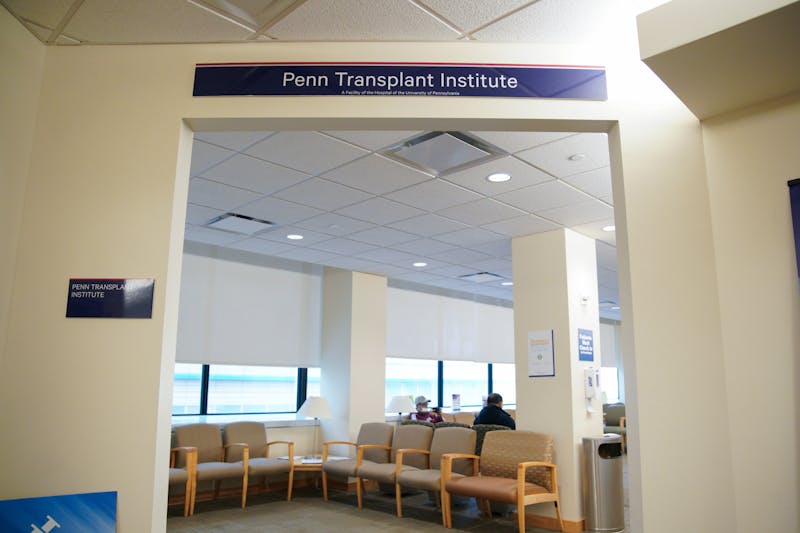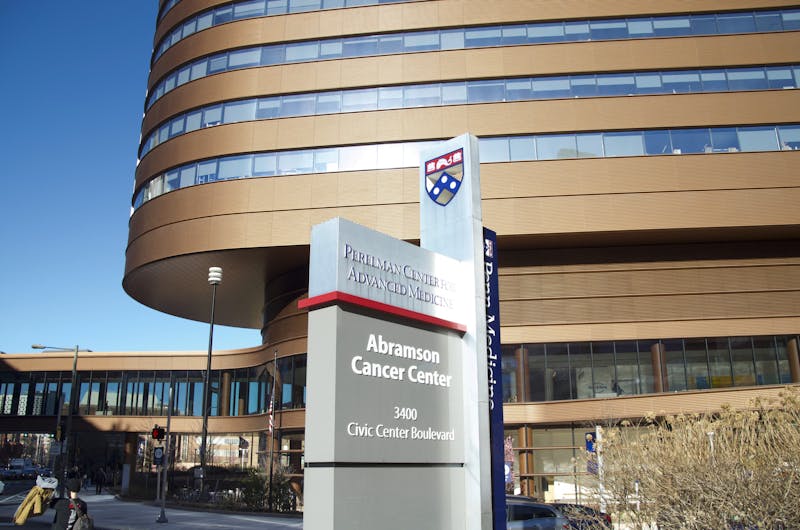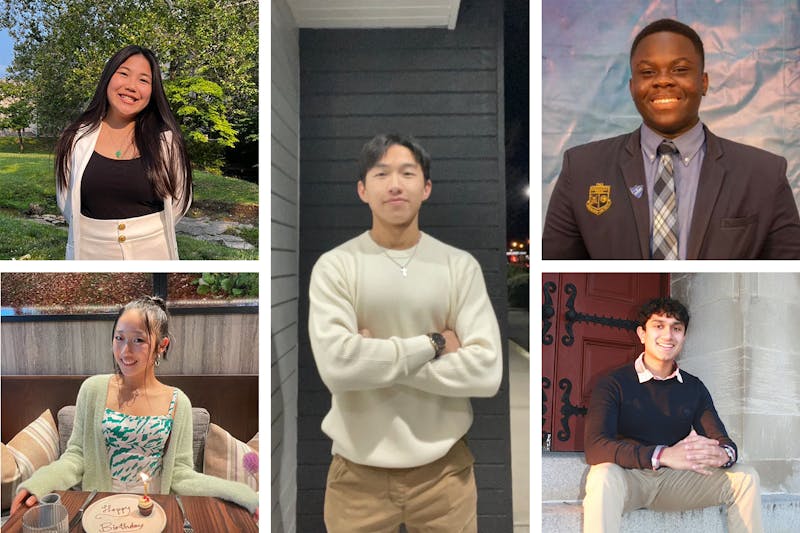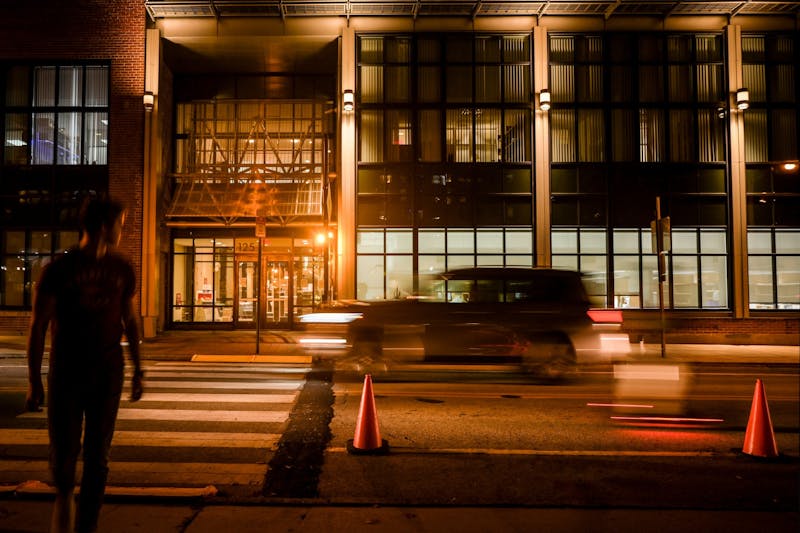
Emily Whitehead, the first pediatric patient to receive CAR T-cell therapy from the Children's Hospital of Pennsylvania, is now a first year in the College of Arts and Sciences (Photo from Emily Whitehead).
Researcher Carl June led the Penn Medicine team that first used CAR-T cell therapy — a Penn-pioneered cancer treatment — to treat adult leukemia patients in 2010.
In 2012, Emily Whitehead was the first pediatric patient to undergo CAR-T cell therapy, and was cured of acute lymphoblastic leukemia at age seven. Now, Whitehead — a Pennsylvania native and prospective English major — is a first-year student in Penn's College of Arts and Sciences.
The Daily Pennsylvanian spoke with Whitehead and June about the discovery which drastically altered both of their lives.
Chimeric antigen receptor T cell immunotherapy modifies the immune system’s T cells to target and kill cancerous cells. The process involves the removal of the body's T cells — white blood cells which are crucial in the human body's immune response — and genetically modifying them before infusing them into the patient.
"We went from thinking it was just an experiment of proof of concept [to see] could you redirect T cells, and then it worked way better in humans than it ever did in mice," June said. "All of the sudden — for something that we never thought would be widespread and commercialized — we got all these offers … and we got thousands of inquiries,” he said.
Since 2010, hundreds of patients at Penn Medicine — and more than 20,000 patients worldwide — have undergone CAR-T therapy, according to David Porter, the director of cell therapy and transplantation at Penn Medicine's Abramson Cancer Center.
Whitehead was the first child, and one of the first people in the world, to receive this treatment.
Whitehead, who hails from Hershey, Pennsylvania, described herself as a "pretty normal kid" until age five, when she and her family suddenly began noticing serious bruises and knee pain overnight, she told the DP.
After receiving a diagnosis of acute lymphoblastic leukemia, Whitehead spent 23 months undergoing unsuccessful chemotherapy at the Milton S. Hershey Medical Center — including relapsing twice in the process.
Rather than following medical advice to cease attempts to cure Whitehead's leukemia, her family decided to seek out a second opinion at the Children's Hospital of Pennsylvania — where a CAR-T cell therapy trial had just begun. In 2012, Whitehead became the first pediatric patient to be treated with CAR-T therapy, following just three adult patients before her.
The treatment originally caused cytokine release syndrome — which happens when the body's immune system reacts too aggressively to immunotherapy — in Whitehead, causing her condition to worsen, according to June.
"There was both the elements of timing and luck that she happened to be there at the time to be enrolled as the first patient, but then the luck that she didn't die when she had a 106 degree fever for two days in the lab," June said.
June and his team treated Whitehead with Tocilizumab, an antibody that was typically used to treat arthritis. He told the DP that he "knew about [Tocilizumab]" because his daughter, who was one year older than Whitehead at the time, had arthritis — stating that this coincidence "saved Emily's life and [is] why CAR-T cells are available."
After just 22 days, she was cancer free.
"She was discharged from the hospital on her seventh birthday, when we treated her, and then every year we never knew if she would have to come back," June said in an interview with the DP. "But there was a consensus after 10 years that she was cured."
Eleven years later, Whitehead began her career as a Penn undergraduate student when she entered the Class of 2027.
Whitehead spent time debating between attending Penn and Pennsylvania State University, because those were the two schools that “[felt] the most like home to [her],” she said, and eventually chose Penn due to the amplitude of opportunities and resources available to students.
She recalled walking through campus every time she was in Philadelphia for doctors appointments at Penn Medicine throughout her childhood.
“I think it's a little different now that I'm a student here, because before I was more just a patient," she said. "Now, I can develop my own identity.”
June spoke effusively of Whitehead's journey to return to Penn over a decade after her treatment.
"That closes that circle in a way I could never have imagined, and I’m so blessed to have seen that happen," June said. "How can you have a better thing than that?"
During her first year of college, Whitehead said that she has taken classes that have interested her greatly, created new traditions to help her feel at home both on Penn’s campus and in Philadelphia, and formed close relationships with her roommates in Lauder College House.
“It was a little bit hard leaving home, but once I got into the groove, I was like, 'I really like it now,'” she said.
Though she has not yet declared a major, she anticipates majoring in English, as she tends to gravitate towards classes centered on reading and writing. Her favorite class thus far is an English course called "Climate Fiction."
This semester, after her American Sign Language class each week, she visits Houston Hall with a classmate to practice sign language and for a weekly lunch of burritos.
Outside of class, she volunteers locally with dogs and is very interested in photography. Last semester, she participated in the Hershey Fellowship through the Penn Women's Center.
Though she was already familiar with Philadelphia from visits to Penn as a child, she has made time to explore Center City, especially cafes and bookstores. She described herself as "very much a cafe person," and named the Last Word Bookshop as a favorite spot nearby.
Looking forward, Whitehead hopes to continue to explore the city and study abroad through a Penn Global Seminar.
“Whenever you have a story like mine, it can be hard to figure out your identity outside of it. I think learning how to balance that is really important,” she said.
The Daily Pennsylvanian is an independent, student-run newspaper. Please consider making a donation to support the coverage that shapes the University. Your generosity ensures a future of strong journalism at Penn.
Donate











